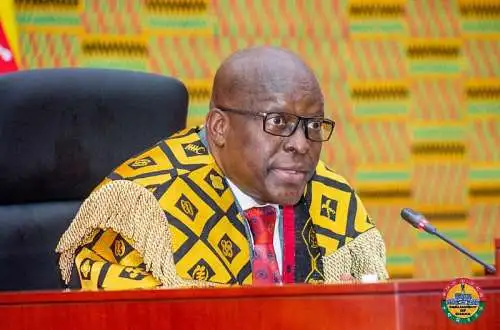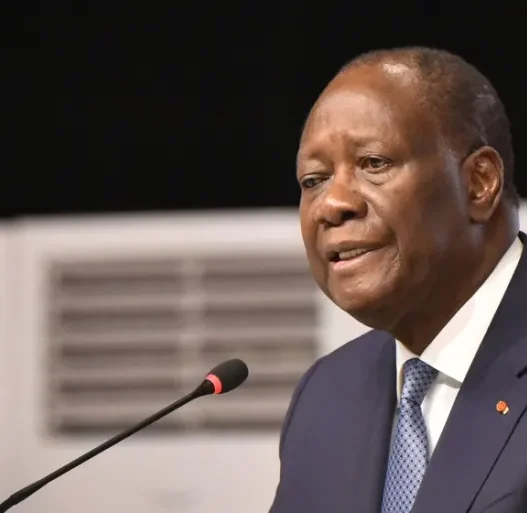The Electoral Commission’s (EC) decision to rerun the election at Abokobi Women’s Development Centre 2 in the Dome Kwabenya constituency, where Elikplim Akurugu of the NDC was initially declared the winner, has sparked intense debate. The runner-up, Mike Oquaye Jnr. of the NPP, trails by a mere 165 votes, with the disputed result involving 669 voters. This decision, while framed as an effort to maintain fairness, raises profound concerns about its legal basis, procedural soundness, and implications for Ghana’s electoral integrity.
This article critiques the EC’s controversial decision, explores its far-reaching ramifications, and highlights the path forward for the declared winner, Elikplim Akurugu, who holds the legal standing to contest this decision.
Legal and Procedural Context
1. Breach of Due Process
The EC cited procedural irregularities, specifically the use of training sheets instead of the officially sanctioned pink sheets, as the basis for rejecting one polling station’s results. Regulation 42 of the Public Elections Regulations, 2020 (C.I. 127), mandates strict adherence to prescribed documentation for collation and declaration of results.
However, the reliance on training sheets reflects a systemic lapse, raising these critical questions:
- Who authorized the use of training sheets?
- Why were alternative methods, such as a forensic audit or judicial intervention, not pursued before nullifying the results?
The EC’s decision to rerun the election places the onus on voters to rectify administrative errors they did not cause, effectively penalizing them and undermining their constitutional right to vote, as guaranteed under Article 42 of Ghana’s Constitution.
2. Lack of Exhaustion of Legal Remedies
In situations where discrepancies arise, the EC has options other than resorting to a rerun. Section 50 of C.I. 127 outlines mechanisms for dispute resolution, including audits and investigations to verify the accuracy of results. Additionally, judicial oversight could provide a legally sound pathway for addressing missing documentation or procedural errors.
The rerun decision bypasses these avenues, raising concerns about its legality and fairness. If the EC failed to pursue alternative remedies, this opens the door for Elikplim Akurugu, the declared winner, to challenge the decision in court.
3. Procedural Precedent and Legal Ambiguity
The EC’s reliance on subjective factors—such as the number of voters in the disputed polling station and the margin of victory—sets a troubling precedent. Who determines the threshold for invalidating results? Such ambiguity risks fostering perceptions of bias and political interference.
Implications of the EC’s Decision
1. Erosion of Electoral Integrity
The EC’s decision undermines confidence in its ability to act as an impartial and competent referee. Ghana’s electoral body has a constitutional duty to deliver credible elections, free from procedural lapses and administrative errors. By failing to adhere to its own regulations, the EC risks eroding public trust and tarnishing its reputation.
2. Disenfranchisement of Voters
The affected voters at Abokobi Women’s Development Centre 2 are being compelled to participate in a rerun through no fault of their own. This decision not only disenfranchises these voters but also creates unnecessary logistical and financial burdens.
3. Legal Standing for the Declared Winner
As the initially declared winner, Elikplim Akurugu possesses the legal right to contest the EC’s decision. The burden of proof lies with the EC to demonstrate that its actions align with constitutional and statutory mandates. If successful, a legal challenge could overturn the rerun decision, reaffirming the original declaration.
Recommendations for Moving Forward
1. Strengthening Internal Protocols
The EC must address systemic weaknesses in its electoral administration:
- Implement real-time monitoring systems to ensure compliance with procedural requirements.
- Establish mandatory audits to verify polling station records before collation.
- Hold presiding officers accountable for documentation errors.
2. Clear Legal Guidelines for Reruns
The ambiguity surrounding reruns must be addressed through legal reforms. Parliament should amend C.I. 127 to include:
- Specific criteria for determining when a rerun is warranted.
- Protocols for verifying disputed results through forensic audits or judicial oversight.
3. Empowering the Judiciary
The judiciary should play a more prominent role in resolving electoral disputes. The EC must leverage judicial processes to validate contested results, ensuring decisions are legally sound and free from political interference.
4. Restoring Public Trust
Transparency and communication are paramount. The EC must provide a detailed account of the circumstances leading to the rerun decision and engage stakeholders in meaningful dialogue to rebuild confidence in the electoral process.
Conclusion
The Electoral Commission’s decision to rerun the election at Abokobi Women’s Development Centre 2 is fraught with legal and procedural challenges. While fairness is an admirable goal, it must not come at the expense of due process and electoral integrity.
As the declared winner, Elikplim Akurugu has a duty to challenge this decision, not merely to protect her mandate but to uphold the principles of justice and accountability in Ghana’s electoral system. Her decision to contest the rerun could serve as a critical test case for strengthening the legal framework governing elections and ensuring that administrative lapses do not disenfranchise voters or undermine democracy.
The path forward requires a collective commitment to reform, transparency, and adherence to the rule of law. Only then can Ghana’s electoral process truly reflect the will of its people.





















